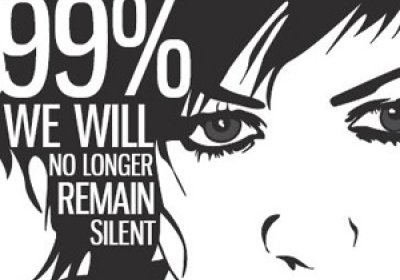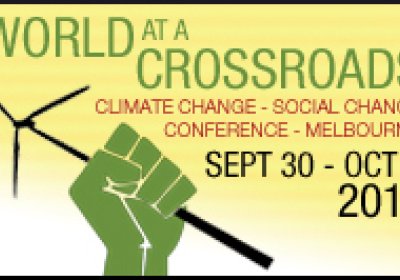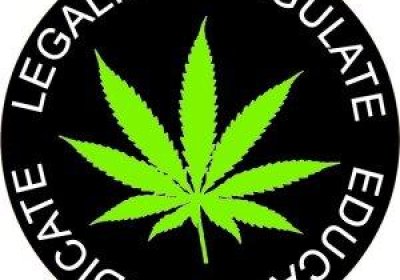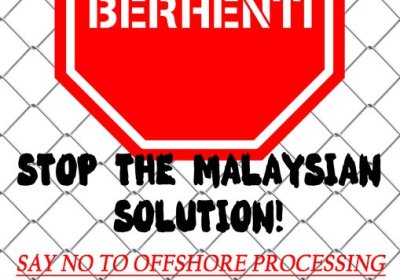The world is rising up. When we look around the globe we see people in motion. Revolutions in the Middle East and North Africa against brutal dictators, the movements against austerity measures in Europe and Britain, democratic and indigenous revolutions in Latin America, and the Occupy Wall Street protests spreading across the United States. Resistance is in solidarity with all these movements for change.
Resistance!
Over the past month, humanities and social sciences students at Adelaide University have successfully fought back against attempted cuts to their tutorials.
In July, deputy vice-chancellor Professor Pascale Quester announced cuts to tutorial numbers from 12 to 10 or nine. The lost tutorials would be replaced by optional one-on-one consultation time with tutorial teachers.
On August 24, at a student-management forum organised by Adelaide University Union (AUU) president Raffaele Piccolo, Quester tried to justify the cuts on educational grounds.
Resistance is a co-sponsor of the Climate Change Social Change activist conference in Melbourne over September 30 to October 4. Green Left Weekly asked some Resistance members about their thoughts on this major event.
* * *
Hannah Reardon-Smith, Brisbane
To me, events such as the Climate Change Social Change conference are essential for reigniting my enthusiasm and my energy for the good (but long) fight.
According to Australia’s outgoing discrimination commissioner Graeme Innes, racism is still a big problem in Australian society.
This is nothing new. Racism has been an issue in Australia since the very beginning of white colonisation, when Aboriginal people were forced from their lands to make way for the new colonial Australia.
But racism, like our society, has changed with the times. This throws up new challenges in tackling it.
It has become a cliche in mainstream media and political discourse that feminism is no longer necessary in society. However many ordinary women disagree.
Green Left Weekly asked members of the newly formed Feminist Collective of South Australia about feminism’s relevance today.
Emma Gray-Starcevic said: “Women still earn on average 17% less than men in Australia, and are under-represented in a huge number of jobs, especially in industries such as law, business and politics — jobs synonymous with high wages and powerful positions.
There’s been much hoo-haa about cannabis possession lately in Western Australia, because now, if you are found with 10 or more grams of it, you’re a criminal.
As of August 1, just 10 grams — rather than the 30-gram amount under the previous Labor government — can land you a maximum $2000 fine or two years’ jail. Heavy, right?
And to top it off, those caught will receive a nice little criminal record to go with it. Get caught with less than 10 grams and you are in for a mandatory counselling session.
The new penalties have sparked an outcry from responsible users across the state.
After the riots in Britain, magistrates were advised to “disregard normal sentencing” when examining the cases of people involved. The result of this is a rapid rate of convictions and a complete lack of proportion between the crimes committed and the sentences delivered.
Resistance will host the Melbourne campaign launch for Wear It Purple on August 27.
Wear It Purple is an organisation which looks out for the interests of young people who identify as lesbian, gay, bisexual, transgender and intersex (LGBTI), and runs numerous campaigns around homophobic bullying, particularly in high schools.
The Refugee Advocacy Group (RAG) was recently formed by high school students in Geelong. The group organised a refugee rights protest in the city on August 13. Green Left Weekly’s Ben Peterson spoke to Max Hill, a year 11 student and founder of RAG.
Tell us about RAG and how this all got started
Max Hill: Basically, the group came about after [immigration minister Chris] Bowen planned to sign the "Malaysian solution".
The ALP is the party for ordinary Australians, right?
Resistance members will often talk about the importance of political movements being independent of political parties, but what does this mean for the ALP?
Isn’t the ALP Australia’s party of progress? And surely they are better then the Tories? Isn’t it our party?
Well, it is a party that’s designed for progressives, unionists and activists, but that doesn’t mean that it's ours. If you look at its history, the ALP has attracted progressive people but rarely helped create change.
If you were sexually assaulted by a member of your school sporting team, would you want to cheer for them when they played? Would you expect your school to uphold your rights over those of your attacker? If the school failed to uphold your rights, would you then expect the courts to find in your favour if you sued?
The answers to these questions should be obvious, but this is not an exercise in rhetorical questioning.
There is no denying it, depression is on the rise across the world. The World Health Organisation says depression will be the second largest contributor to the global burden of disease by 2020. For young people this is already the case. Depression leads to about 850,000 deaths every year.
But why is depression on the rise? In some instances it is a product of more readily available methods of diagnosis and public understanding of the disorder. But increases in suicide rates and other indicators suggest that the increase in depression is well beyond this statistical readjustment.
- Previous page
- Page 8
- Next page











